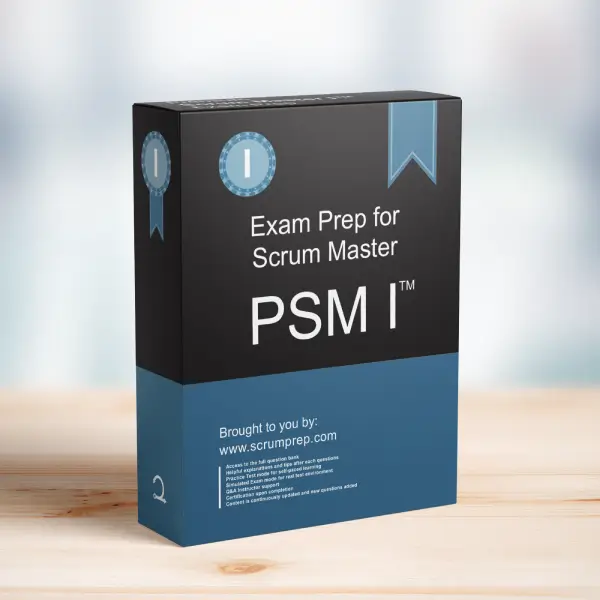The Role of the Product Owner in Scrum Teams
In the Scrum framework, the Product Owner plays a crucial role in managing the Product Backlog and ensuring that the team delivers maximum value. A common question in the PSM I exam pertains to whether each Scrum Team should have a separate Product Owner.
Exam Question
True or False: Each Scrum Team should have a separate Product Owner.
- A. True
- B. False
Correct Answer
B. False
Explanation
Why B is Correct
B. False: In Scrum, it is common for multiple Scrum Teams to work on the same product. These teams share a single Product Owner. This ensures that there is a unified vision and consistent prioritization of work across all teams. The Product Owner is responsible for maximizing the value of the product, and having one Product Owner for multiple teams helps maintain alignment and coherence in the Product Backlog.
Key Points
- Single Product Owner: When multiple Scrum Teams are working on the same product, they share a single Product Owner who is responsible for managing the Product Backlog.
- Unified Vision: Having a single Product Owner helps maintain a consistent vision and prioritization of work across all teams.
- Product Backlog Management: The Product Owner ensures that the Product Backlog is ordered and refined to maximize value and align with the teams’ capacities.
Responsibilities in Scrum
- Product Owner: Ensures the Product Backlog is ordered and refined to maximize value and align with the team’s capacity. The Product Owner is accountable for effective Product Backlog management.
- Scrum Master: Facilitates communication and ensures the Scrum framework is followed, supporting the Product Owner in their role.
- Developers: Collaborate to complete all tasks necessary to deliver a potentially shippable Increment, aligning their work with the ordered Product Backlog and the Sprint Goal.
Relevance to the PSM I Exam
Understanding the role of the Product Owner and their relationship with multiple Scrum Teams is crucial for the PSM I exam. This knowledge ensures that you recognize the importance of having a single Product Owner to maintain alignment and maximize value across multiple teams.
Conclusion
In summary, when multiple Scrum Teams are working on the same product, they should share a single Product Owner. This approach helps maintain a consistent vision, ensures coherent prioritization of work, and maximizes the value delivered by the teams. The Product Owner’s role is vital in managing the Product Backlog and ensuring that the teams’ efforts align with the product goals.
For comprehensive preparation and practice exams, check out PSM I Exam Prep to enhance your understanding and application of Scrum principles.




